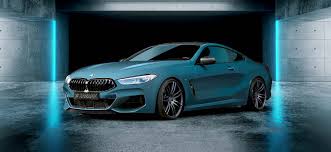BMW engine tuning can increase the horsepower and torque of your vehicle. Tuners use various techniques to enhance BMWs, including engine tune-ups, chip tuning, remapping, and performance tuning. Here’s more information about different tuning options and how a BMW tuner affects the power and performance of your vehicle:
Tune-Ups, Chip Tuning, and Remapping
A BMW tune-up is a routine engine service required to keep the vehicle running as expected. General tune-ups include adjusting the carburetor idle speed and air-fuel ratio, replacing spark plugs, resetting emission controls, and valvetrain adjustments. General tune-ups don’t involve changing the vehicle’s key parameters. The process is more like a service to restore the vehicle to optimal performance after thousands of miles.
Chip tuning involves modifying the vehicle’s computer data programmed by the manufacturer. Modern BMW engines feature an engine control unit (ECU) or engine management system (EMS). Most vehicles feature the same engine but use different ECU calibrations to suit a particular buyer’s market. A BMW tuner can adjust the ECU parameters to various settings to yield more horsepower and torque.
BMW remapping is a stage one engine tuning involving turbocharged vehicles with modern ECUs. The ECU has firmware that controls engine parameters, such as fuel consumption, horsepower, torque, fuel emission, and service intervals. Identical BMW engines can use different firmware, known as maps, resulting in power output differences. Changing the factory settings can unlock better engine performance.
How Tuning Affects Power and Torque
Tune-ups restore your engine’s original performance, while chip tuning and remapping change factory ECU parameters for better performance. ECU remapping is accomplished by reading and editing the existing firmware using special tools plugged into the vehicle’s onboard diagnostics port. Tuners use special software to safely change parameters like fuel injection, boost, rail and fuel pump pressure, and ignition timing.
BMW tuners can customize the map for your city, on-track performance, or general linear power increase. After editing, the map is written back to the engine control unit. Chip tuning offers quick horsepower and torque gains via plug-and-play installation of the required software. The chip will recognize future modifications and adjust the air-fuel ratios accordingly, so no modification is required for the first installation.
Chip tuning and remapping mainly increase horsepower, torque, and fuel economy by adjusting the air-fuel ratio. Your tuner can also modify fuel injection and ignition timing. Tuning is accomplished in phases to provide reliable improvements without compromising the vehicle’s safety, fuel economy, and emissions. BMW engine tuners can help you achieve small linear increases in power that your vehicle can handle.
How Tuning Affects BMW Performance
Performance tuning is the engine tuning done on motorsport and track vehicles, but you can improve the performance of most BMWs. This tuning focuses on increasing horsepower, torque, responsiveness, and reliability. Performance tuning is typically accompanied by upgrades to the transmission, driveshaft, and other powertrain components to accommodate the increased power. Here are some of the main steps involved in BMW performance tuning:
- Modifying air-fuel ratios and the type of fuel used
- Adjusting timing and ignition dwell
- Compressing the air intake by reducing the size of the combustion chamber
- Increasing engine displacement through boring or stroking
- Using a larger throttle body for better airflow
- Adding an extra carburetor for more controllable air-fuel mixtures
- Using larger inlet and exhaust manifolds to maintain gas velocity
- Adjusting valve timing to optimize burning efficiency
- Adding a turbocharger or supercharger
- Completing necessary suspension tuning to bear the load of the added power
Performance BMW tuning involves a wide range of modifications done to on-track motorsport vehicles. The level of performance enhancement depends on the engine, BMW model, your budget, and desired modifications. Most tuners perform chip upgrades and minor intake and exhaust adjustments for general improvements. After tuning, the BMW is tested for performance, smoke levels, drivability, and other issues. The tuner can also make changes to the trim and body to improve overall drivability and support the increased power output.
Use a BMW Tuner for Power and Performance
BMW tuning involves fine-tuning your vehicle’s engine to increase performance and output without compromising safety. A tuner can help you increase your BMW’s mileage, horsepower, and torque while improving throttle response. You can also use BMW performance parts, including heat exchangers, exhaust systems, intake air filters, coil-over suspensions to enhance your vehicle. Contact a professional BMW tuner today to learn more about how you can boost your vehicle’s power and performance.

